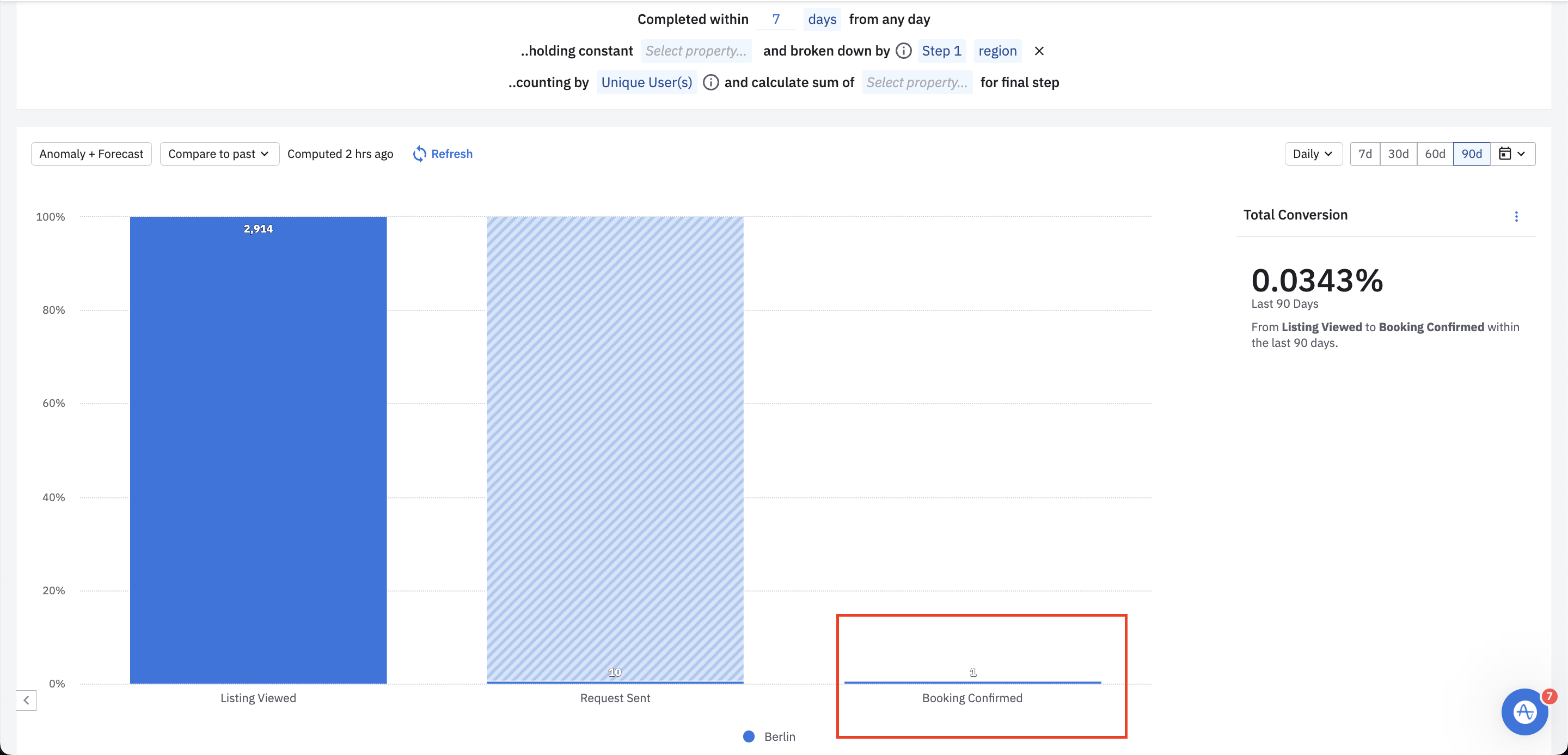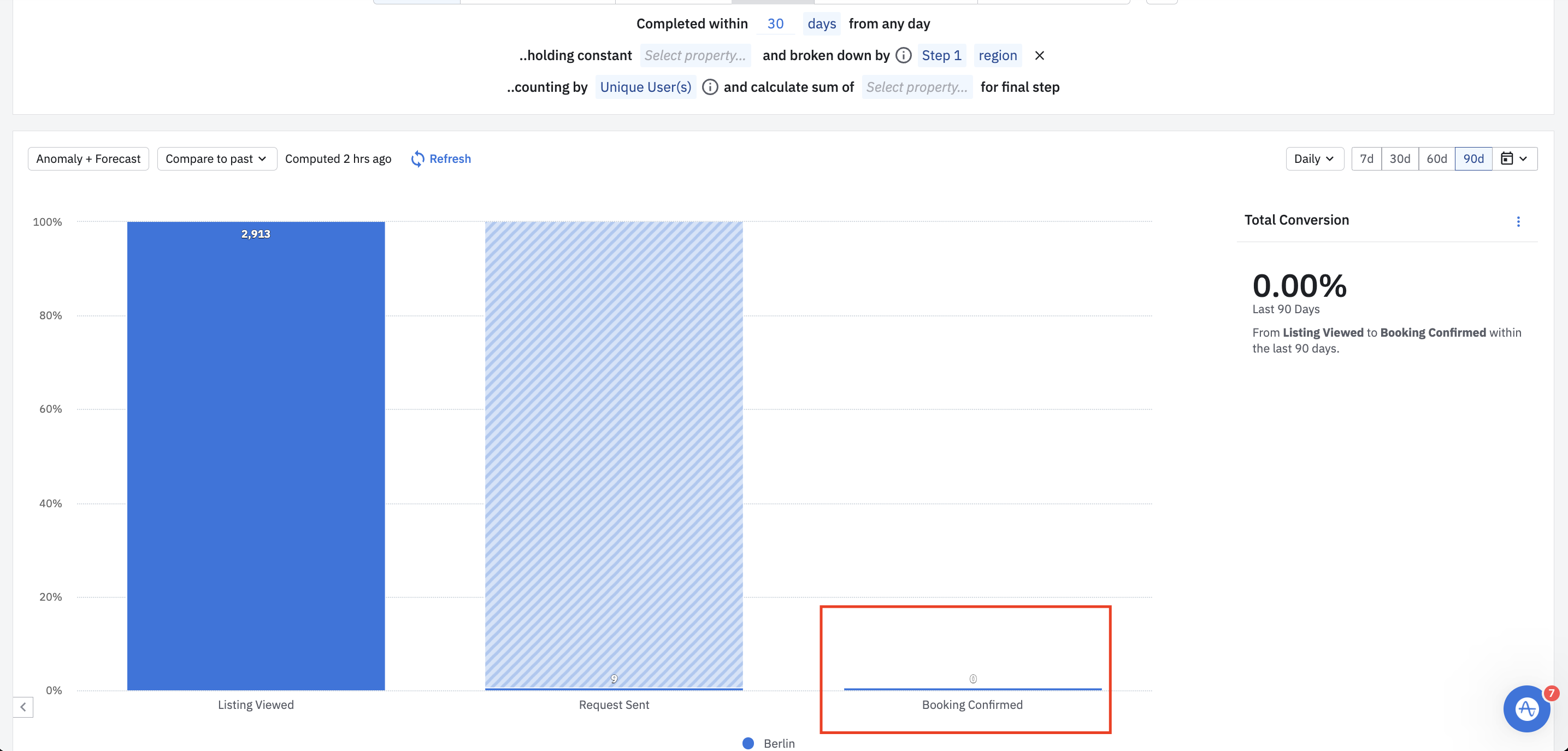Hi there,
Hope anyone can help me.
How is it possible that there are less people who completed the funnel when I increase the range in which users can complete it?
I would expect to have more or at least the same amount of users in the 30 day range funnel, since we’ve given users more time to convert.
Completed within 7 days

https://analytics.eu.amplitude.com/goboony/chart/e-gfp84to?source=copy+url
Completed within 30 days

https://analytics.eu.amplitude.com/goboony/chart/e-0ch3gdj?source=copy+url